
We kindly inform you that, as long as the subject affiliation of our 300.000+ articles is in progress, you might get unsufficient or no results on your third level or second level search. In this case, please broaden your search criteria.

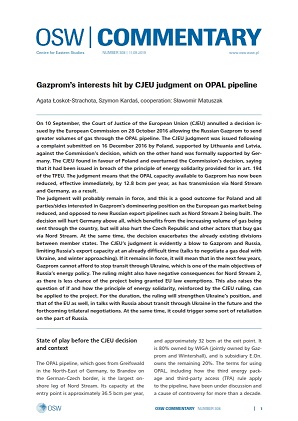
On 10 September, the Court of Justice of the European Union (CJEU) annulled a decision issued by the European Commission on 28 October 2016 allowing the Russian Gazprom to send greater volumes of gas through the OPAL pipeline. The CJEU judgment was issued following a complaint submitted on 16 December 2016 by Poland, supported by Lithuania and Latvia, against the Commission’s decision, which on the other hand was formally supported by Germany. The CJEU found in favour of Poland and overturned the Commission’s decision, saying that it had been issued in breach of the principle of energy solidarity provided for in art. 194 of the TFEU. The judgment means that the OPAL capacity available to Gazprom has now been reduced, effective immediately, by 12.8 bcm per year, as has transmission via Nord Stream and Germany, as a result. The judgment will probably remain in force, and this is a good outcome for Poland and all parties/sides interested in Gazprom’s domineering position on the European gas market being reduced, and opposed to new Russian export pipelines such as Nord Stream 2 being built. The decision will hurt Germany above all, which benefits from the increasing volume of gas being sent through the country, but will also hurt the Czech Republic and other actors that buy gas via Nord Stream. At the same time, the decision exacerbates the already existing divisions between member states. The CJEU’s judgment is evidently a blow to Gazprom and Russia, limiting Russia’s export capacity at an already difficult time (talks to negotiate a gas deal with Ukraine, and winter approaching). If it remains in force, it will mean that in the next few years, Gazprom cannot afford to stop transit through Ukraine, which is one of the main objectives of Russia’s energy policy. The ruling might also have negative consequences for Nord Stream 2, as there is less chance of the project being granted EU law exemptions. This also raises the question of if and how the principle of energy solidarity, reinforced by the CJEU ruling, can be applied to the project. For the duration, the ruling will strengthen Ukraine’s position, and that of the EU as well, in talks with Russia about transit through Ukraine in the future and the forthcoming trilateral negotiations. At the same time, it could trigger some sort of retaliation on the part of Russia.
More...
Suriyeli sığınmacıların Türkiye’ye adaptasyonlarının sağlanması ve asgari yaşam standardı elde edebilmeleri için çalışma haklarına erişimleri sağlanmalıdır. Sığınmacıların çalışma izni almasında uygulamada büyük sorunlar çıkmaktadır. Suriyeli sığınmacıların çalışma izinleri süreci, başlangıçta özel bir hukuki düzenlemenin yokluğu ve düzenlemelerin çıkarılması ardından ise çıkarılan yönetmeliklerdeki hükümlerin belirsizliği ve uygulanmasında yaşanan problemler nedenleriyle halen sıkıntılıdır. Yabancıların çalışma izni alması, genel itibariyle zorlu bir süreç iken, söz konusu yabancı bir mülteci veya sığınmacı olduğunda, daha da zorlaşmaktadır. Suriyeli sığınmacılar genel olarak YUKK m. 91’de düzenlenen geçici koruma kapsamında korunmaktadırlar. Geçici koruma sağlananlar için çalışma izinleri ayrıca Geçici Koruma Yönetmeliği m. 29’da ve bu madde doğrultusunda çıkarılan “Geçici Koruma Sağlanan Yabancıların Çalışma İzinlerine Dair Yönetmelik”’te özel olarak düzenlenmektedir. Ancak hem bu düzenlemelerde boşluk olan durumlarda genel çalışma izni hükümlerine referans verilmesi hem de yabancıların ile 1951 BM Mültecilerin Hukuki Statüsüne İlişkin Sözleşme kapsamında ve YUKK m.61 kapsamında korunan mültecilerin durumu ile kıyasla değerlendirilebilmesi için, öncelikle genel hükümlerden bahsedilmesi yararlı olacaktır. Ardından Geçici Korunan Yabancılar için getirilen özel hükümler incelenerek, son olarak uygulamada çıkan bazı sorunlar, mevzuat ışığında değerlendirilecektir.
More...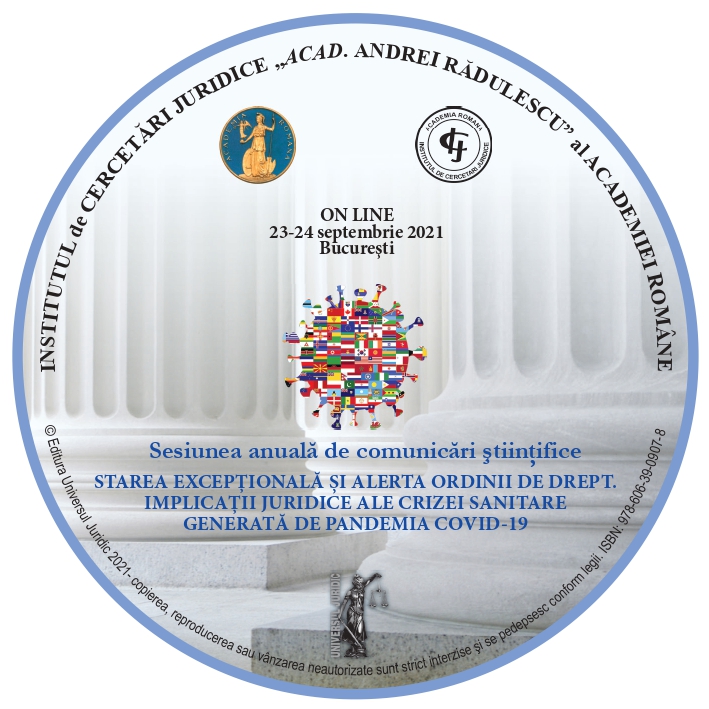
The year of grace 2020 brought a unique situation for our society, in the context of pandemic situations never seen before by contemporaries. The danger of losing one's life but also the fear of the unknown has determined and continues to determine a state of insecurity that is fundamentally reflected in all areas of society. Of course, the sphere of trade could not be avoided, this very important area of the economy being severely affected by all the measures that have been taken to combat, limit and prevent the spread of the virus. Thus, the commercial contracts suffered, the non-executions of the contract being very common, just as the delays or non-conformities increased. Also effects on trade were the decreases in the number of transactions and the clientele that used the goods/services of traders, given the travel limitations and restrictions imposed during emergencies and/or alerts.
More...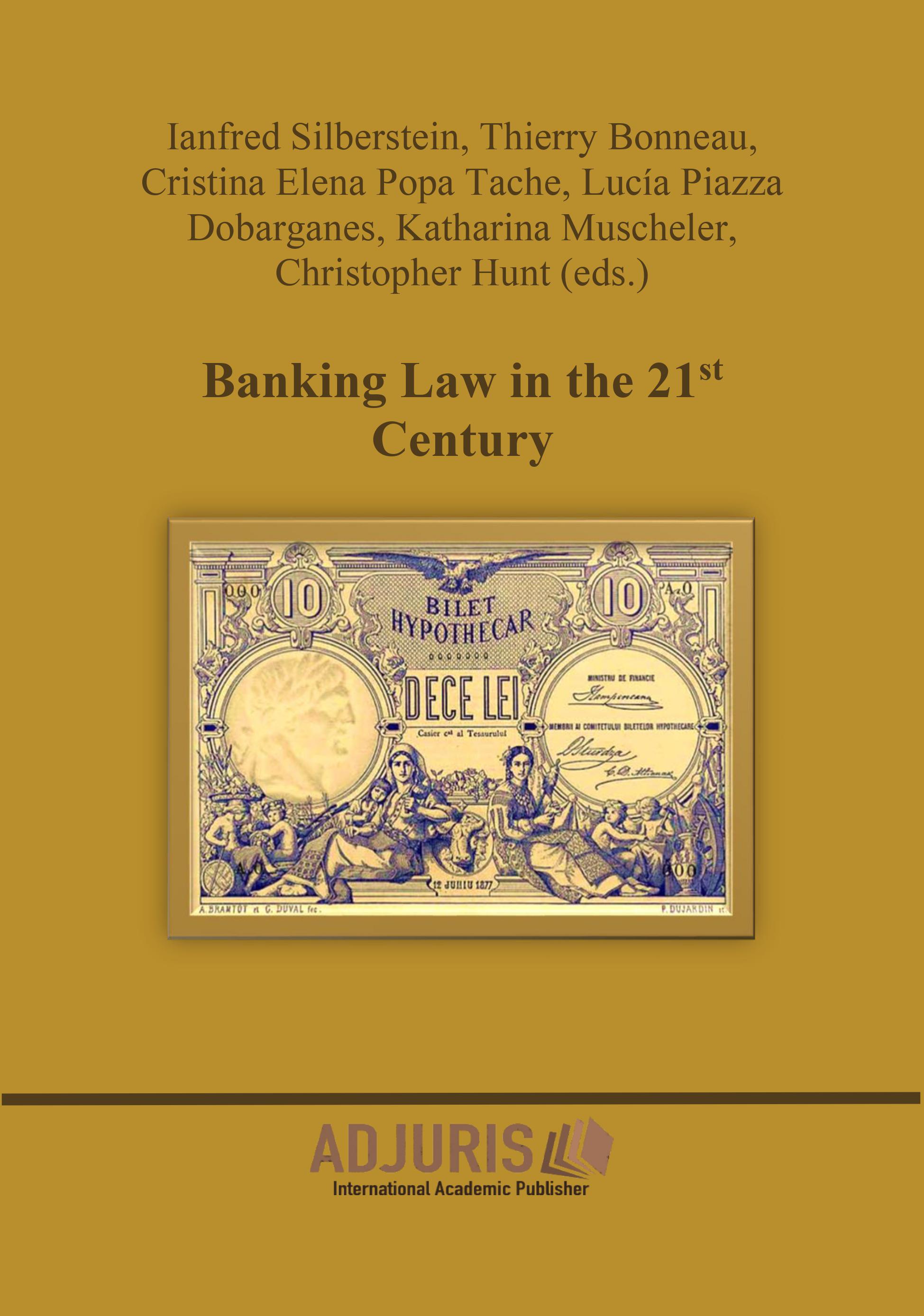
The paper presents the arguments of the Court of Justice of the European Union (CJEU) in case Dietrich (C-422/19) and case Weiss (C-493/17), which concern the analysis on the compliance of the national law and regulations adopted by the European Central Bank (ECB) with the primary sources of European law (Treaty on the Functioning of the European Union - TFEU) and with the mandatory rules of the Statute of the European System of Central Banks (ESCB). Pending disputes, both in Germany, have reopened the subject previously discussed in the case Gauweiler (C-62/14), concerning the adoption of rules alleging that monetary policy limits have been exceeded and that the ban on monetary financing has been infringed (Article 123 TFEU). In the case Dietrich CJEU examined the concept of means of payment accepted in the euro area, in the case Weiss there is an analysis on the program of acquisition of the public sector in secondary markets, formally adopted and implemented for more than three years, while case Gauweiler verified the conformity of the program for the purchase of government securities issued by euro area Member States. The paper reveals the competence of the CJEU to verify the rules by which monetary policy measures are implemented and it proves the extension of the EU monetary policy effects outside the euro area, through the influence of the CJEU jurisprudence in the legal system of all Member States.
More...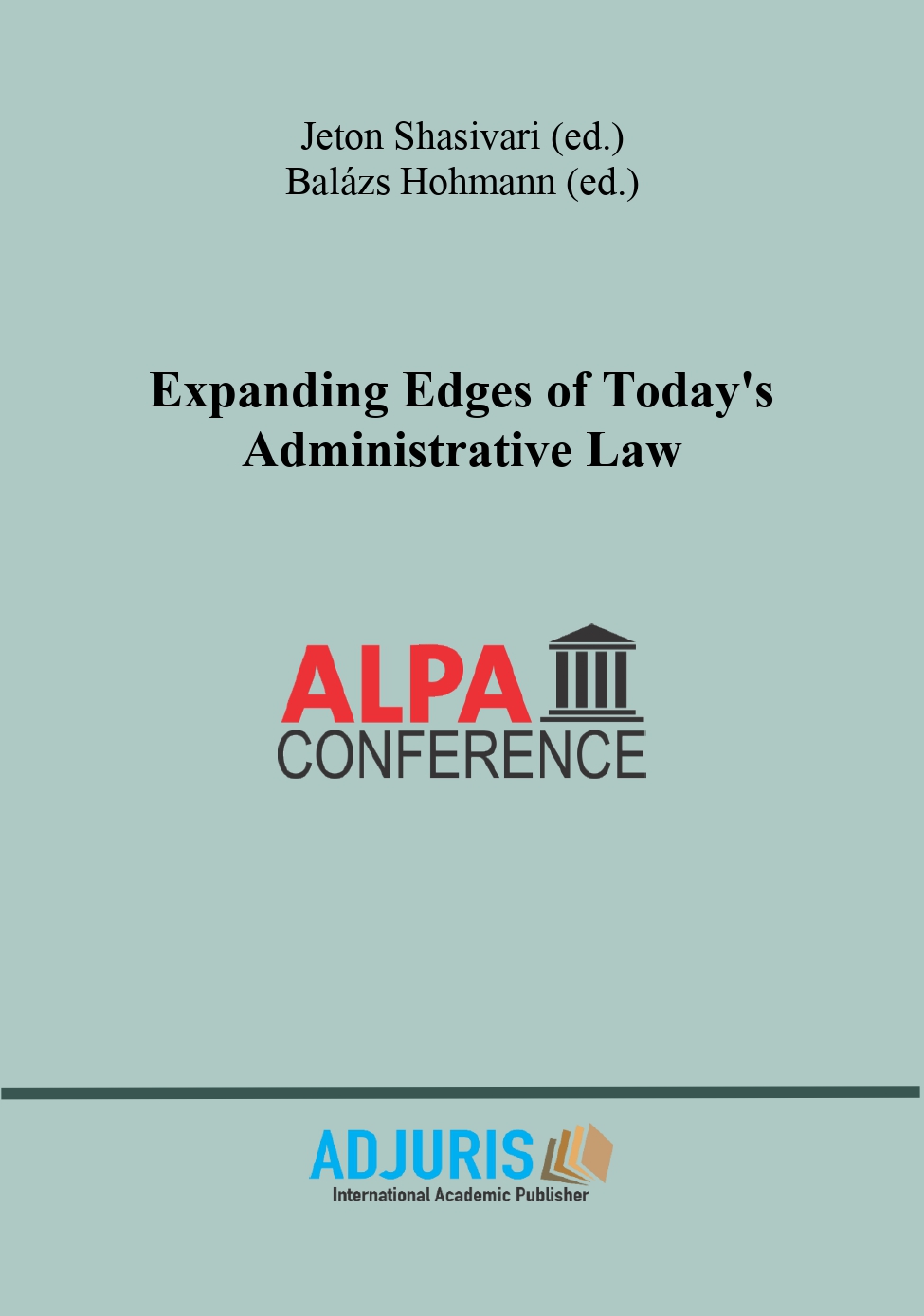
With the Communication from the Commission, entitled "Single Market Act" of 2010, on the Europe 2020 Strategy, the issue of the internal market is relaunched by the European Union institutions. The field of progress of the internal market is oriented towards the digital single market - PUD. The European Union is thus becoming a digital player, which means for the Member States a transformation and adaptation to the information society. A key role in the completion of the digital internal market is played by the Commission, which has tabled numerous legislative proposals since 2010, in parallel with the European Parliament, which has adopted a number of resolutions to this effect. In the context of these regulatory concerns, many questions are emerging about how the digital single market responds to the needs of citizens, businesses and beyond.
More...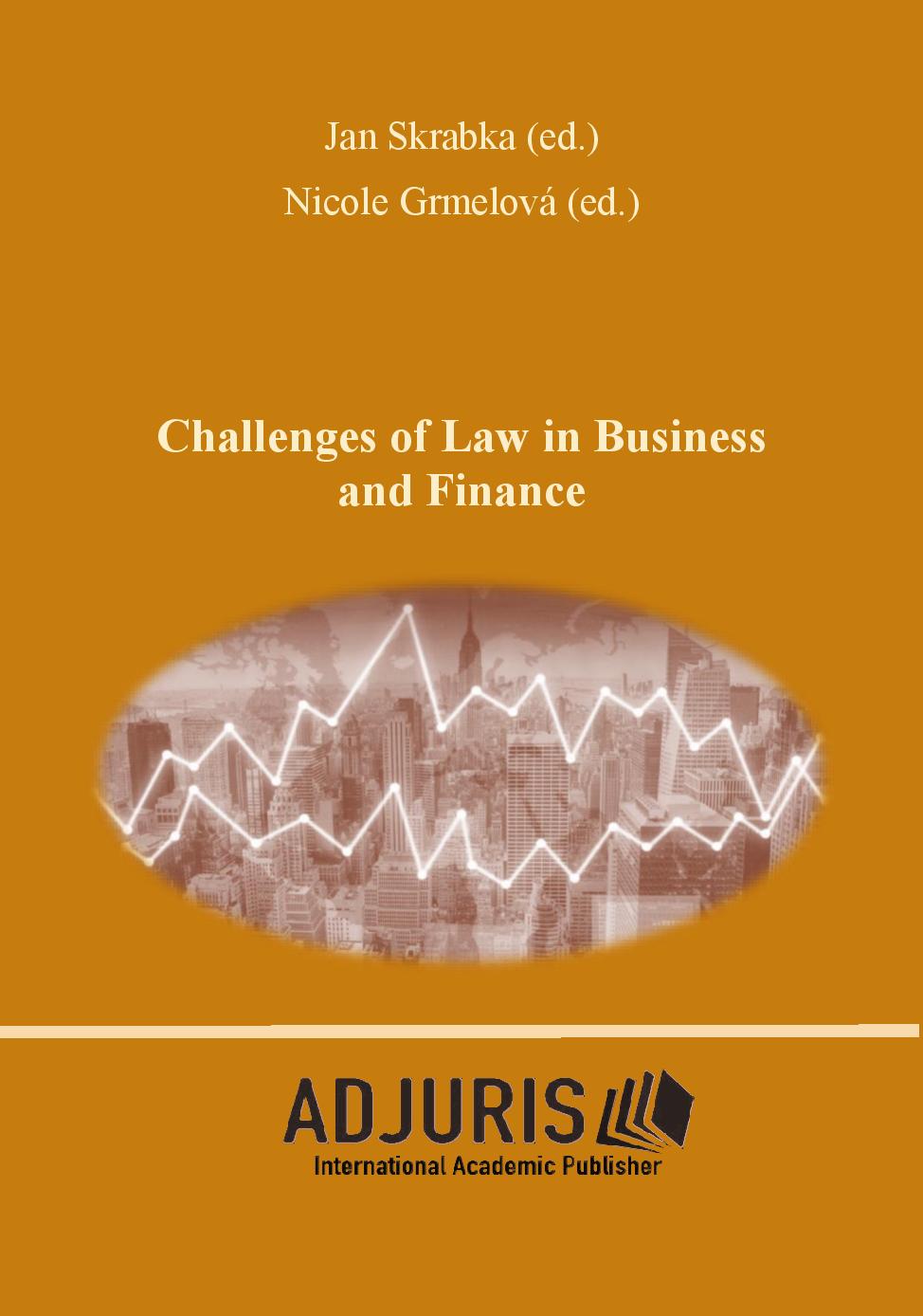
The Slovak Act on the Protection of Competition prohibits the public authorities from restricting competition by providing evident support giving advantage to certain entrepreneurs, or in any other manner. This national regime of protection against anticompetitive interventions by public authorities evolves alongside the European one. The issue of a normative administrative act, the issue of an individual administrative act (or failure to issue such act, where it should have been issued), adoption of decision by a representative body or conclusion of a contract were identified as vectors of unlawful intervention into competition. The creation of a situation of inequality of income, costs or obligations of undertakings (or tolerating such situation), the creation of barriers to the participation in the market or giving advantage to certain undertakings in their competitive or supplier/customer relations were declared as having anticompetitive effect.
More...
The paper deals with pricing algorithms in the context of competition law. Antitrust authorities around the world are concerned about the fact that pricing algorithms with even relatively low level of sophistication tend to cooperate without specific instructions, what may lead to their tacit collusion challenging current antimonopoly regulation. Negative impact may be seen in prices set above the market level and suppressed competition which may bring damage to consumers. Current legislation is not prepared for such technological advancement. The paper provides an overview on possible solutions for taking autonomous pricing algorithms under control.
More...
The aim of this paper is to showcase the Czech and EU law that regulates supply of digital content and services and assess its general usefulness with regards to contractual practice and consumer protection. This is achieved primarily by analysing the present and upcoming law that regulates the said topic and its comparison with con- tractual practice on the market. The paper concludes, that in the digital market, consumers have little control over the contracts they can enter into. Many of these contracts are consumer-unfriendly or even illegal. The law offers several ways the consumer can de- fend their rights on the market, but these are not cost-effective.
More...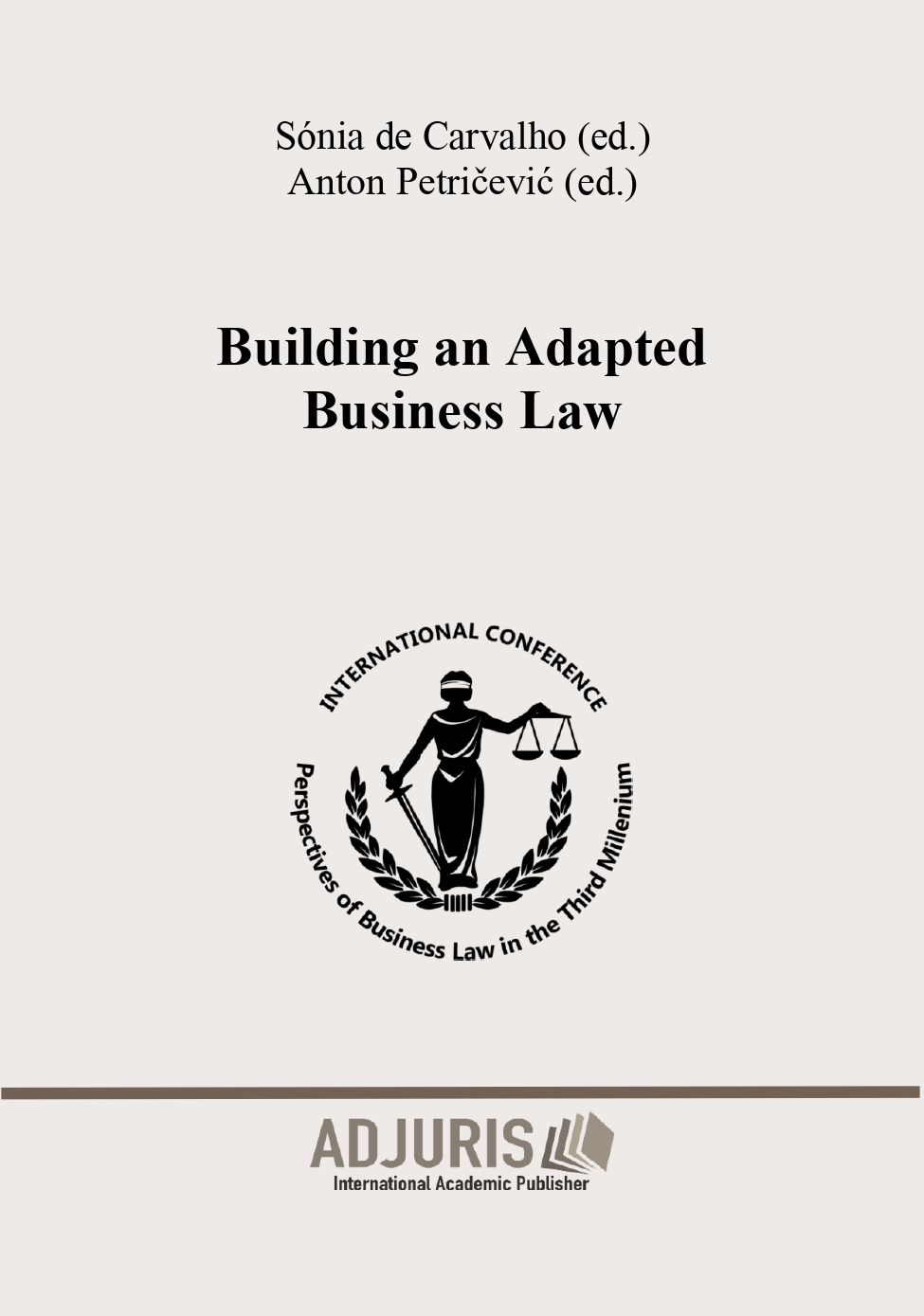
Any processing of personal data should be lawful and fair. GDPR provides rules relating to the protection of natural persons with regard to the processing of personal data and rules relating to the free movement of personal data. In is well known that a real estate transaction (regardless if it is an asset or a share deal), implies processing some personal data. This is applicable also for the legal persons involved in real estate transaction. This article aims to answer to some relevant questions related to the restrictions imposed by the GDPR in the context of a real estate transaction of whatsoever type.
More...
In the field of labour law, we are currently witnessing a development in the case law of the Court of Justice of the European Union concerning multiple office-holding with the same employer, which is changing the framework of the regulations and practices related to employment relationships at national level. The CJEU's judgment in Case C-585/19 established as a matter of principle that the mechanism for determining the daily rest period for workers who have concluded several contracts of employment with the same employer is to be determined by reference to the total number of contracts - irrespective of how high the number of contracts concluded with the same employer is - and not by reference to each contract individually. Therefore, we will make an attempt at analysing the effect of this ruling at national level, by reference to the specific provisions of the current Labour Code regulations which, in some cases, enshrine differences of nuance and different perspectives from those established by Directive 2003/88/EC concerning certain aspects of the organisation of working time.
More...
The analysis of the interaction between the legal order of the Union and the law of the World Trade Organization (WTO) would be incomplete without a critical assessment of how European judges and panels and the WTO appellate body contribute to the articulation between the two legal systems. The Court has rejected the direct applicability of WTO law in settled case-law. This merely means, however, that Member States, in an action for annulment, or the parties in a reference for preliminary ruling on the validity of an EU act, may not rely on the incompatibility of an EU act with the WTO Agreement. The possibility of basing infringement proceedings on an infringement of WTO law does not run counter to the aims and particular character of dispute settlement in the WTO and can ensure the effective enforcement of any negative ruling by the WTO dispute settlement bodies. If the European Union was not able to bring infringement proceedings against Member States in such cases, the internal implementation of international trade law would even be seriously jeopardised.
More...
Za privredno pravo se veže predrasuda koja kaže da EU institucije nijesu sposobne ni voljne da se bave crnogorskom privredom niti da se bore protiv „očuvanog crnogorskog monopola“ iz bivšeg komunističkog perioda. Međutim, privredno pravo Crne Gore je postiglo značajne rezultate u harmonizaciji sa acquis-em EU. Isto tako, acquis u ovoj oblasti sadrži jasna pravila o zahtjevima objavljivanja, formiranju, održavanju i promjeni kapitala, pripajanjima i podjelama, ponudama za preuzimanje i pravima akcionara, kao i principima korporativnog upravljanja.
More...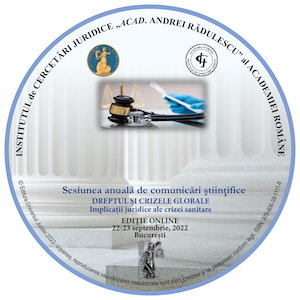
Stock companies that are listed on the Bucharest Stock Exchange can rely on different forms of financing: bank loans, issue of corporate bonds, share capital increase by issuance of new shares. Each mechanism has its specific advantages and disadvantages, which are to be tested in a turbulent economic landscape, characterized by the rising inflation rate and the quantitative tightening process led by the central banks. Through this study we set out to examine in a comparative manner the above-mentioned possibilities, trying all the time to tackle the problem from both an economic and a legal perspective.
More...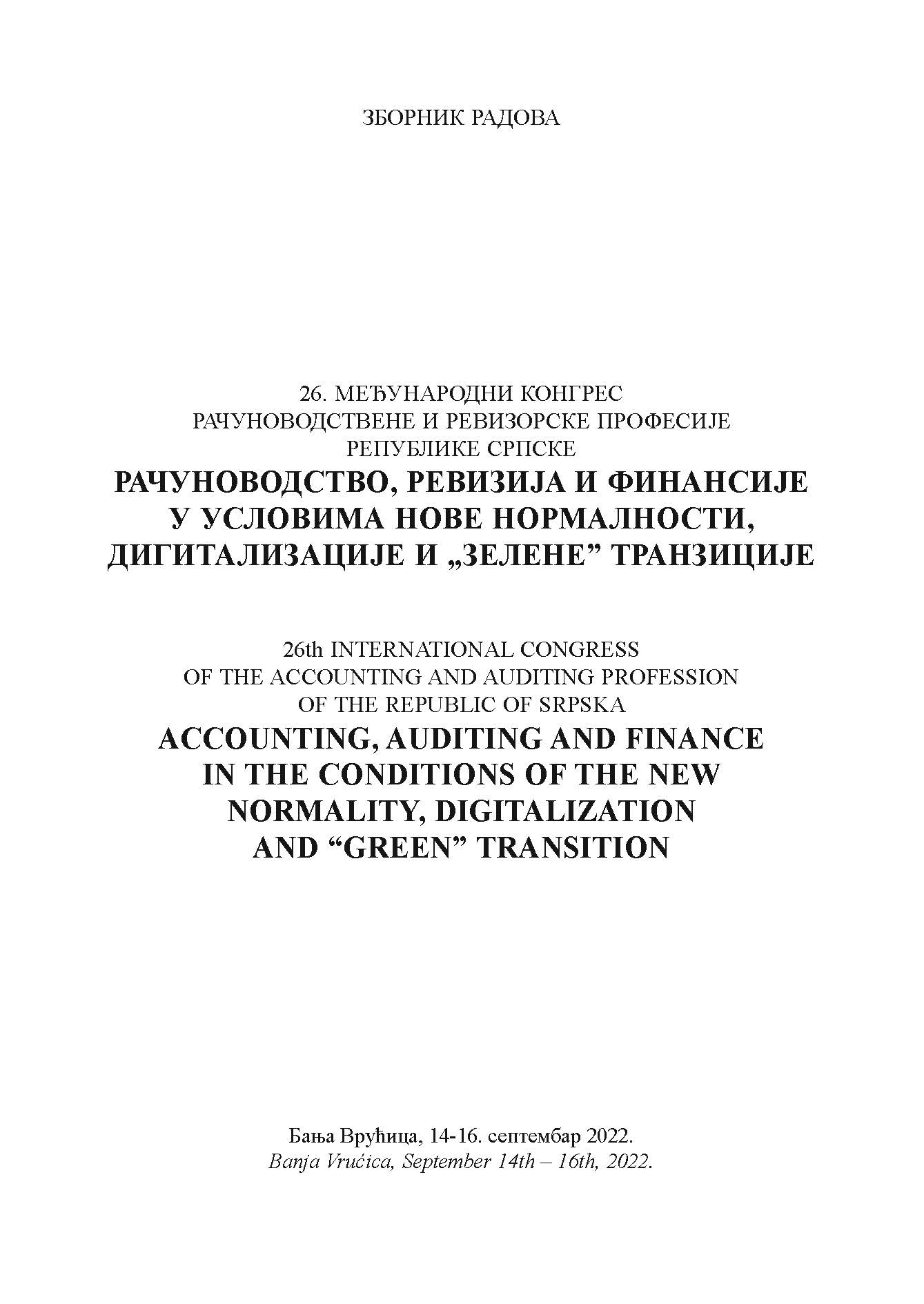
Despite the fact that tax evasion has always been an interesting and repeatedly relevant economic and financial phenomenon, it has been insufficiently studied and researched in our theory and practice. At the foundation of tax avoidance (tax evasion) lies the taxpayer’s resistance to tax compliance and his intention to avoid any form of reduction of his disposable income. This is due to the fact that the tax represents a derivative public revenue that the country “takes away” from people who are subjected to its fiscal sovereignty without direct counter-service. If we start from the fact that paying taxes reduces the economic strength of the person who bears its burden, the human tendency towards tax evasion is quite understandable, provided that the extent to which the resistance to paying taxes will be manifested and realized depends on several factors, such as economic trends in the state, frequent changes in tax regulations and mentality of the people who are liable to pay taxes. In any case, tax evasion represents a serious and complex social problem that significantly undermines the economic and legal basis of society. It is a complex phenomenon that occurs both on the national and international level and causes serious consequences for the fiscal policy of the state, and the key reason for the occurrence of this phenomenon is most often found in the poorly developed economic system of the country with a loose mechanism that doesn’t ensure the implementation and observance of legal (especially tax) regulations. Tax evasion reduces the possibility for the state to cover the costs of using public goods, and from the tax payers’s point of view, it leads to an unequal and unfair distribution of tax liabilities, to an increase in tax rates and the resistance of taxpayers who, through tax avoidance, reduce thevolume of taxation and thereby create a vicious circle that is difficult to terminate. In addition, tax evasion is one of the main causes of stratification in our society, and with the spread of this phenomenon the strength and importance of economic justice and equality is being questioned, as well as political and economic efficiency. However, it is important to point out that not all actions of taxpayers which lead to a lower tax burden, or complete avoidance of paying taxes are sanctioned by criminal and misdemeanor norms, which is why in this paper, among other things, we will explain both illegal and legal tax evasion. Also, we will explain the criminal law significance of anti-abuse rules as legal measures that aim to reveal the behavior of taxpayers who have intentions to achieve illegal tax savings, and we will get acquainted with new international and domestic instruments in the fight against tax evasion.
More...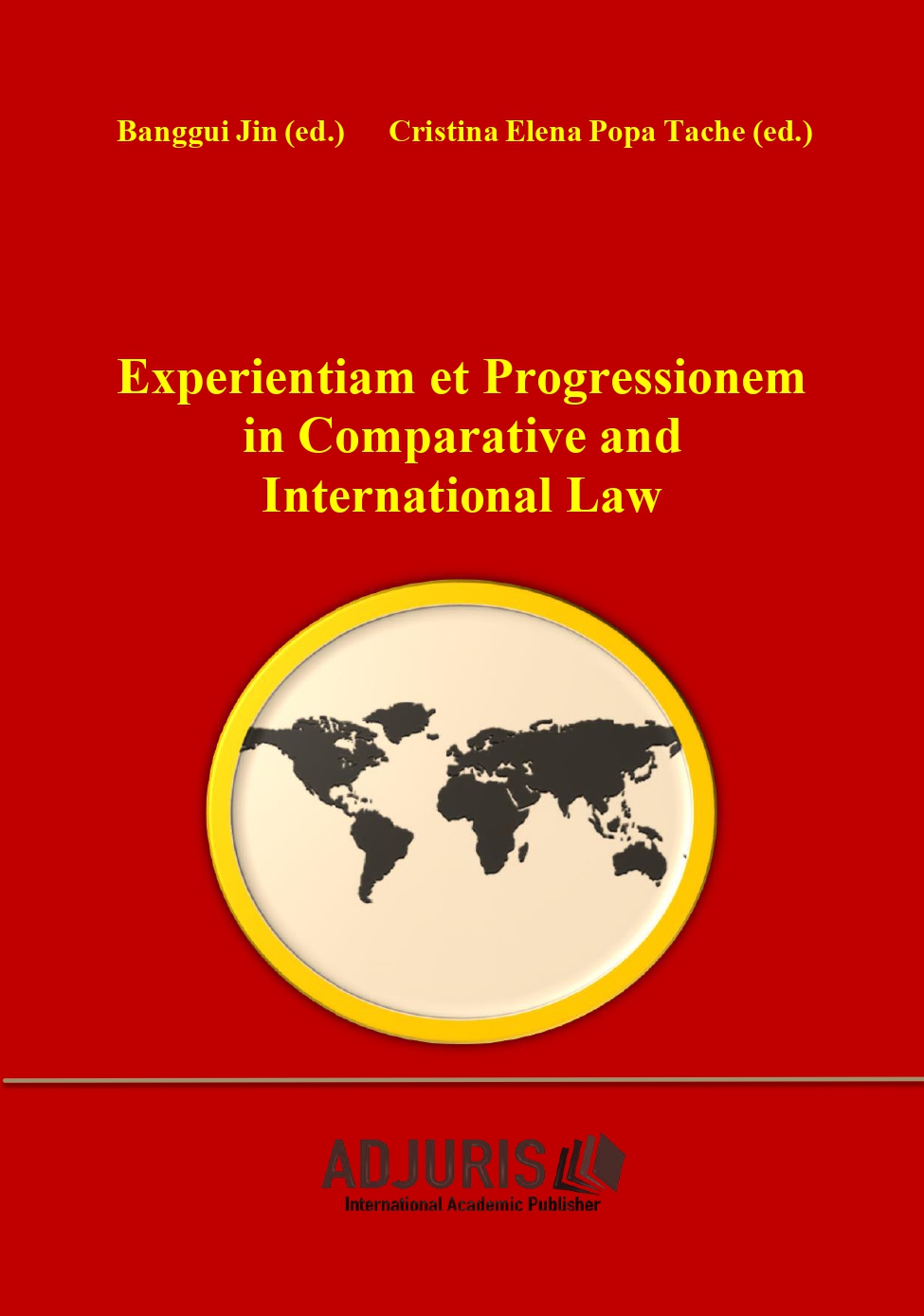
Given the characteristics of arbitration as an alternative dispute resolution method ― among those most relevant here being the confidentiality/privacy of the procedure and party autonomy ― do previous cases have a legitimate role in deciding a dispute? And, if so, should they play an important part in the economy of the decision? Are previous awards only persuasive authority or could Arbitral Tribunals be compelled to follow the reasoning of (certain) previous arbitral awards? The answer is not clearcut. Some Arbitral Tribunals seem to give weight to the wide adoption of a certain award. Other, seem to be influenced by their own legal background (if any) in giving more or less weight to previous cases considering that civil law and common law approaches to case law are different. The applicable law, as per the parties’ choice, is an issue too. And there is also the matter of the accessibility of the awards, which depends on the type of arbitration. As a matter of public interest, for investment arbitrations there are more awards available than in commercial arbitrations (given the inherent “cone of silence” surrounding the more private latter procedure). So, which of these factors should matter more? The objective of this present paper is not necessarily to give a definite answer, but rather to raise awareness on the issue for it to be properly addressed and considered by the parties to an arbitration, beforehand.
More...
Fraud is closely monitored by insurance companies as well as by state bodies set up to enforce the law and take measures to prevent antisocial acts. If in other countries the fight against insurance fraud is regulated by specific laws, in Romania there are still incipient phases because people are not aware of the size of the phenomenon and the consequences. As regards the way in which insurance fraud is regulated, it differs depending on the need to introduce regulations in this area. We found the existence of uneven criminal provisions and sanctions, which differ from country to country. The purpose of this article is to compare the laws in the field of combating insurance fraud.
More...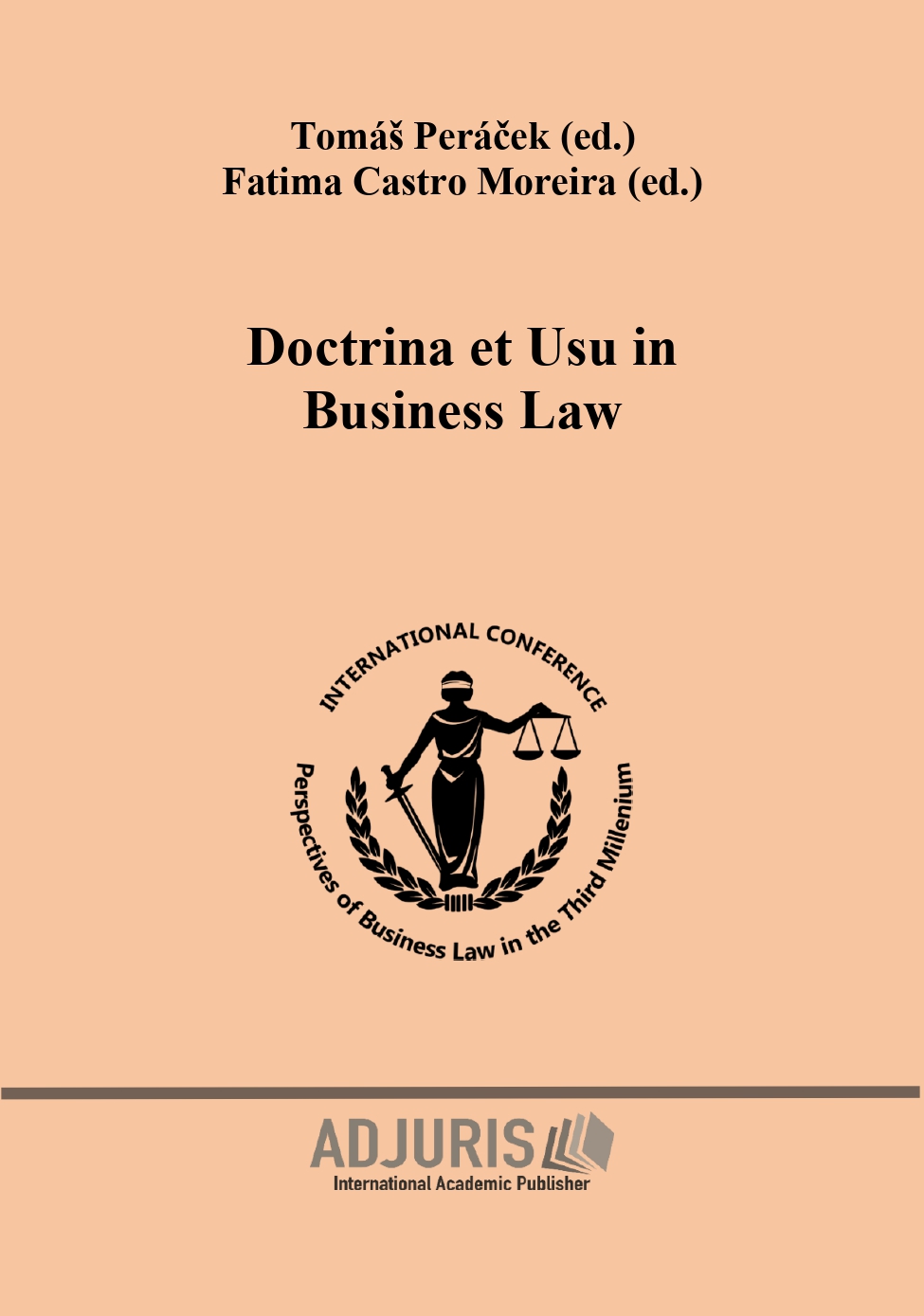
At the beginning of the third millennium, the business environment is undergoing unprecedented developments, largely due to the many events facing humanity - the COVID-19 pandemic, war, the rapid transition to renewable energy, economic globali-sation and the emergence of multinationals - thus accelerating digitisation. Digitisation in the business environment involves the use of tools and technologies that make work more efficient, create new business 'patterns', but at the same time requires an appropriate legislative framework. The legal "industry" is faced with the challenge of finding legislative solutions to bridge the gap between the entrenched realities of the entrepreneurial environment and the digital future of business. And this extremely difficult task falls to a large extent to legal practitioners, among whom an important position is occupied by the notary public, especially in the field of real estate. Real estate is inextricably linked to the notary public. The notary public must be able to act as a temporal portal between the established practice of real estate transactions and digital real estate transactions. At the same time, the notary public must rethink the methods of application of the various institutions of civil law in order to guarantee the safety and security of each party involved.
More...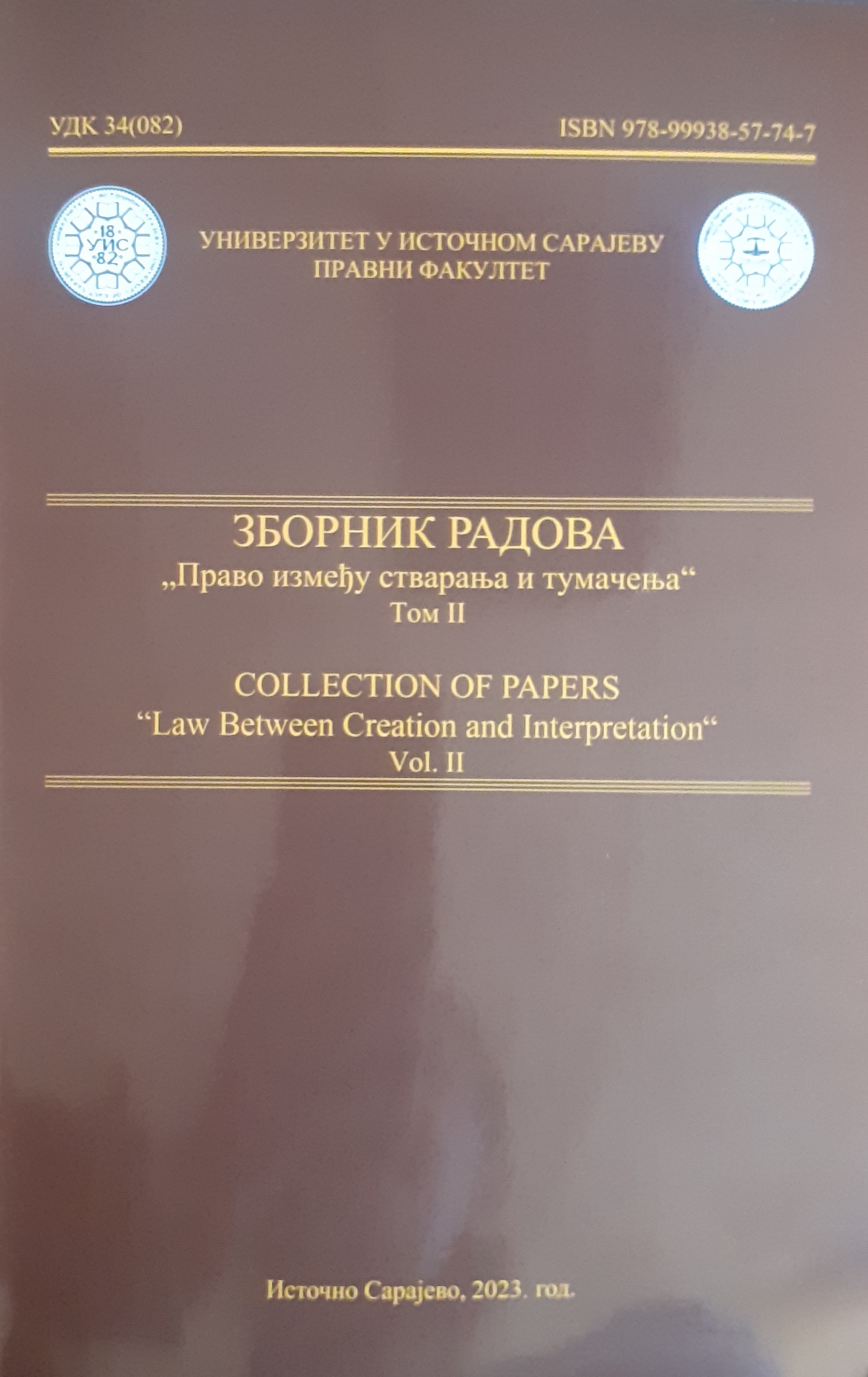
Regarding consumer protection, a crucial question is who the consumer can approach to enforce their rights due to defects in the purchased goods. In this study, we will delve into the entities accountable in situations involving defects in goods as outlined in the legal framework of Bosnia and Herzegovina (BiH). As BiH operates under two distinct laws for consumer protection, namely the Law on Consumer Protection of BiH and the Law on the Consumer Protection of Republic of Srpska (RS), we will ascertain whether consumers on the entire territory of BiH are afforded an equivalent level of protection in such scenarios. We will underscore the necessity of aligning regulations across BiH and assess their compatibility with EU directives designed to safeguard consumers as a distinct category of purchasers. Furthermore, we will put forth recommendations for enhancing consumer protection, particularly concerning the responsible parties in cases involving material defects.
More...
Every newly conquered or at least touched border, in all spheres of society, is characterize by the lack of laws that would regulate that "newly conquered territory". In the past, lawmakers had to face and obey the challenges arising from specific social conditions and specific communities or nations. International law bridged the gap, but it often took years and decades for a particular legal norm to be formulated, agreed upon, and put into effect. But it was so before and during industrial revolution, before technology began to guide us, our society and our institutions; before our dependence on a world governed by computers and the Internet began, in which man had to find his place, prosperity and well-being. In the meantime, the Internet has developed to unprecedented proportions, leading to the emergence of E-commerce, which brought about a revolution in providing commercial services. The creation of law is a complicated and slow process, and technological advances are to rapid, so there is a problem and a dilemma: can law keep pace with the dynamic changes and development of information and communication technologies? Every new law that governs the relationships arising from new technologies quickly becomes obsolete, and there is a need for its revision and modification., and so on, ad infinitum. This contributes to the creation of legal norms that are too broadly set or imprecise to be lasting, which in turn increases legal uncertainty, which then, inversely proportionally, affects the trust among entities that participate in E-commerce. Also, technical achievements create certain practical standards much faster than the law is able to regulate them. Therefor, a standard de facto becomes a norm long before the law normatively supports such a standard.
More...